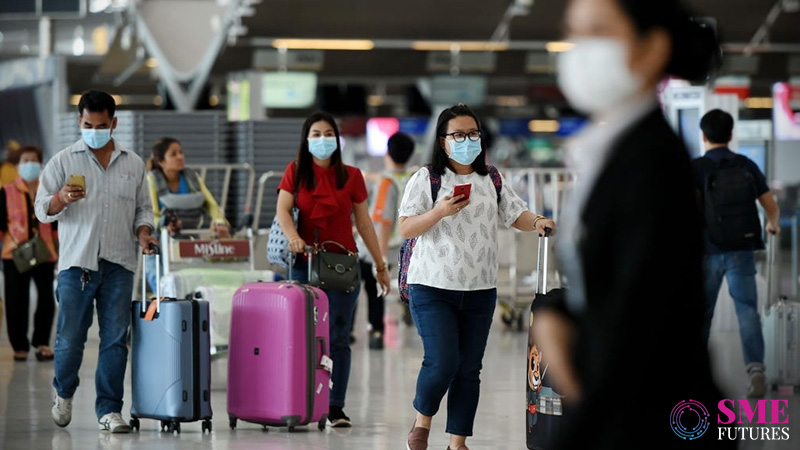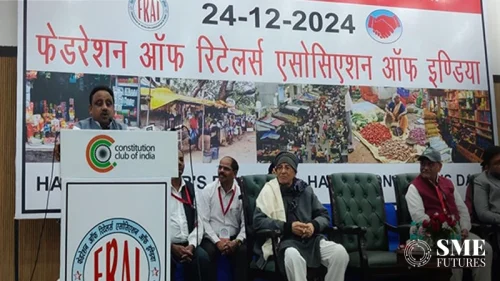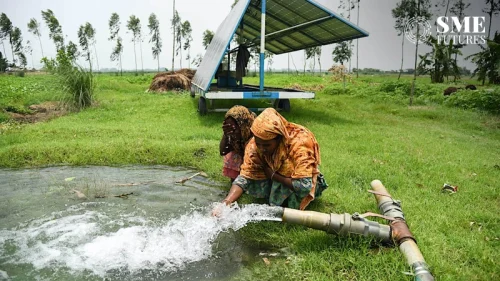The pandemic has had a significant impact on the hospitality industry. However, it is also the one industry that consumers were eager to see restarting and getting back on its feet. Technology played a big role in this process, while WFH and the new norms engendered by the pandemic, ushered in new travel and hospitality trends, which the experts feel will be seen again in 2022.
Say yes to travel!
Although the travel industry is still in recovery mode, there are clear indicators that travel will continue to rebound in 2022.
People will be travelling to make up for their lost vacation time.
79 per cent of travellers are now more open to different types of vacations, according to a 2022 trends survey by Booking.com.
“After such a long stretch of sacrificing socialising, travelling, and fun, travellers will embrace a new, more positive way of thinking for 2022. The number of people who feel like they need to make up for lost vacation time has grown from 49 per cent to 75 per cent. With any and all travel plans being put on hold due to the pandemic, 2022 will be the year of simply saying yes, with 83 per cent agreeing that they would say, ‘yes’ to any vacation as long as their budget allowed it,” state the findings.
Another reason for saying yes to the travel will be self-care.
84 per cent of Indians agree that travel helps in inducing mental and emotional wellbeing more than other forms of self-care do. Besides that, in 2022, while they are on vacation people will stick to the ‘all play no work’ mode, says Booking.com in its survey.
“In 2022 we’ll see a significant rise in people wanting to firmly re-establish a healthy work-life balance, with 77 per cent agreeing that vacation time will be strictly work-free in the future,” says the survey.
Travelling solo is a fad
Solo travel was always an option. However, the year 2020 has changed the world and our worldview for ever.
Travelling has become one of the most effective stress relievers, says Ankita Sheth, co-founder, Vista Rooms.
“The pandemic’s impact and subsequent lockdowns have been well documented. More and more people are discovering the benefits of solo travel; we have seen an increase in the number of cases where people are venturing out for a month on a solo travel spree. They simply give in to their wanderlust. It has given a new definition to travel thanks to WFH,” she says.
Mehul Sharma, Founder & CEO at Signum Hotels & Resorts feels that 2022 will see a surge in solo travellers once again.
“Yes, there has been a surge in demand from solo travellers this year. We have seen about a 22 per cent jump over the last year, especially to places that are in the 3-4 hour driving distance category considering the safety aspects. And about a 32 per cent increase in the average length of stay from 5 days to around 14+ days. This means more and more people are opting to stay longer at a particular location while working remotely and enjoying the destination at the same time,” he elaborates.
Not only this, but solo travellers include single females as well. Sharma’s firm has been witnessing a definite jump in single female travellers, as has Vista Rooms. “A large number of young people have taken a long break from their careers and have chosen to travel alone. We’ve seen a lot of solo female travellers living out of their suitcases,” she says.
Sharma weighs in, saying, “They form around 16-18 per cent of the business mix. It’s a reasonable jump in numbers over the last year, at around 47-48 per cent. And we foresee that these numbers will keep moving up. Aspects of hygiene, safety, health and security remain of prime importance.”
Travellers are opting for destinations with a purpose
Among other things, travellers are now looking to spend money on places with a purpose. For instance, travellers nowadays are opting to spend on local SHGs associated with the travel brand that they are using.
This kind of trend is certain to have a long-term impact. This is one interesting behavioural shift that we’ve noticed, says Sheth.
“Travellers are embracing local cultures, flavours and practises. With a growing appetite for local tourism, they are opting for countryside locations, private homestays and farm stay experiences. Adding to that, they look out for how and where their spendings are being utilised. So, seeking that after a long haul locked inside for many months, is in itself a purpose,” she comments.
It’s bleisure time!
Back in the day, a spouse would accompany you to the annual conference, which is now over and done with. Now, the hybrid mode of bleisure travel alllows us to add weekends, or even weeks to work trips, whether we are traveling alone, with a partner or with our families. It is a profitable and opportunistic mode of travel for people who want to mix pleasure and work in place where the destinations are appealing.
“While millennials are the front runners in this bleisure travel game, the other generations are catching up. It goes without saying that fast, dependable internet is essential, as is a technology that makes attending meetings and zoom calls a breeze. It is a profitable and advantageous mode of travel for people who want to combine pleasure and work. Our properties have every amenity to support such travellers, like high-speed wi-fi, power backups, home-like comfort, home-cooked food and spacious arrangements for holding meetings and celebrations; making our villas an ideal choice for such bleisure trips,” elaborates Sheth.
She tells us that work vacations account for 60 per cent of her total business revenue.
Technology to bridge the gap
So far, tech intervention has been the primary strategy of the hospitality and travel players to survive the pandemic’s impact.
New technologies have enabled the improvement of processes and operations in accordance with the new standards. Technology has made work more manageable and made it easier to meet today’s customers’ increasingly high expectations.
There are many more such innovations happening all over the world. Due to which investing in hotel technology has gradually increased in popularity. It has created an entirely new hospitality tech market, leading to the emergence of many tech start-ups catering to this sector’s needs.
Talking about how the future looks like for the hospitality sector, Sharath Rice, Co-founder and COO, VRO Hospitality says that technology is going to continue bridging the gap between consumers and dining outlets.
“Technology has touched every aspect of the food and dining industry. From search, discovery to booking, ordering, and delivering a fine customer experience, technology has become the driver of customer experience in the F&B industry. At the front end, technology has enhanced efficient automated guest services through touchscreens and handheld ordering devices. This has provided outlets with a lot of consumer data based on their order behaviour and an excellent opportunity to offer the customer a personalised experience every time he/she returns. At the back end, it has led to better inventory and cost control by changing the dynamics of supply chain policies and supplier relationships. The industry is working towards leveraging technology to bring in better efficiency and sustainability in the industry,” he says.

Services through mobile phones
Since smartphones have become more of a necessity than a convenience, everything is now done via mobile apps. And now more than ever, consumers are expecting to receive the same digital experience from the travel and hospitality industry.
In fact, 80 per cent of travellers agree that technology will be more important than ever while they are on vacation. According to the Booking.com research, 77 per cent of travellers believe that technology is important for controlling health risks when traveling, with 76 per cent agreeing that technology helps to alleviate their travel anxiety.
Meanwhile, 79 per cent would be interested in a novel service that could predict which travel destinations are safe to visit ahead of time. Or, based on their country’s and the destination’s current COVID-19 requirements, it could automatically suggest places that are easy to travel to right now (77 per cent).
With so many people looking for varied services from the travel and hospitality industries via their mobile phones, it’s crucial for the players in this sector to invest in the right technology. As it is, due to the pandemic, the demand for mobile tech has increased exponentially.
A survey done by Canadian hospitality tech firm Operta shows that 85.9 per cent of hospitality professionals feel that using technology to automate operations will be a priority for them in the next two years. While 82.4 per cent said that implementing ‘keyless technology’ was also a priority.
It is clear that the professionals feel that this trend is here to stay. From booking to check-in to digital keys and guest room technologies, everything will be controlled by apps. For instance, global hospitality brand Hilton offers digital key technology to its guests, which can be used on devices via the Hilton Honors app.
The pandemic has accelerated this trend. It has created a new demand for eliminating any experience that could affect the safety of the guests and the staff. The travel and hospitality industry has embraced contactless technology. For instance, take our vacation villas, says Sheth of Vista Rooms.
“Technology interventions include digital check-ins, coded key cards, and sensor-operated gadgets, as well as a fully stocked kitchen, doorstep grocery delivery, in-home laundry, gym equipment, and a workstation. To live comfortably, guests are constantly looking for premium amenities, gadgets, equipment, and hands-free service,” she tells us.
Accepting the fact that mobile tech is a growth factor, Mratunjay Beniwal, COO & Co-founder, zingbus says, “Technology plays a very important role as it provides a much better online presence as compared to the traditional players. In our case it’s the bus operators, and it enables us to reach the end-customers digitally in a more effective manner.”
Consumers are seeking advanced mobility
It’s a fact that the core urge to travel remains the same even if the ways of travelling have completely changed due to the pandemic. We may never go back to the pre-COVID ways, but consumers are expecting that the modes of travel and mobility will adapt to the new normal.
“Consumers are expecting a digitally advanced mobility system with enhanced visibility of vehicles and reduced waiting time on the road. The last two years have been challenging for most of us. With vaccines, increased focus on hygiene, and safety measures, travel is coming back, and we can finally begin looking forward to new adventures, memories, and experiences in 2022,” says Amit Gupta, Co-founder of GogoBus.
Adding to this, Beniwal says that with the growing need to commute, travelling is rapidly increasing and so is the need for improvisation and enhancement. “zingbus is changing the way India travels in multiple ways. People now look for comfort with an array of services. Hence, we offer well-established lounges for greater comfort to our customers, which is an additional feather in our hat. And this goes hand in hand with the new standards post-pandemic,” he informs us.
“Adherence to Covid-19 protocols will be the most important aspect to ensure the safety of all travellers. Completely sanitised buses with a verified crew are imperative for a smooth, safe, and carefree journey. Food on the go is another important aspect while our customers experience a new and advanced way of travelling,” he further adds.
Brands are thinking about sustainability
Conversations about sustainability have been happening for quite some time now. And for the year 2022 this will remain on the agenda of the professionals in this sector.
As consciousness about this topic is increasing, the travelling, hospitality and other sectors are changing and adapting accordingly. Most of us are thinking hard about how to do more and do better in this regard.
To put it in other words, sustainable architecture, eliminating plastics, reducing paper consumption and stopping food wastage along with many more such things are now on the sustainability to do list.
As an example, EV mobility is something that the government is taking stringent steps towards. “It’s to make travel better and efficient, not to forget free of emissions,” points out Beniwal. He states that the roadmap for zingbus for the next two years is to facilitate door-to-door connections for passengers and run the highest number of electric fleets in the country.
“This trend looks as bright as ever. Especially for the intercity travel industry,” says Beniwal. “With rising environmental concerns, it is incumbent upon all of us to be conscious of the way our businesses operate and flourish,” he asserts.
“A host of concessions and investments have made EV buses and their batteries more affordable. It’s time that the intercity bus travel industry leverages on improving facilities and increases its focus on the adoption of energy-efficient technologies while maintaining the high standards of their amenities and services on offer. In the next two years, zingbus will be doing the same,” he tells us.
Sheth feels the same way. Her company Vista Rooms’ assets already had sustainable features incorporated into them. Talking about the trend, she tells us that most of their properties are energy-efficient homes.
“Energy-efficient homes are those that use renewable energy sources wisely, have energy-efficient architecture, and use energy-efficient appliances. The majority of our properties have a solar power backup inverter system,” she says.
she cites the example of one of Vista Rooms assets, the Fagunia Estate in Nainital. The property incorporates smart window placement to retain warmth and reduce the energy usage for heating. And they make the most use of natural light, to limit the need for artificial lighting during the day. A centralised solar water heating system provides hot water.
“It does cost more to be energy-efficient and eco-friendly, but the satisfaction of knowing that we are doing our part to protect the environment is immense. In the long run, focus on sustainability solutions pays off by reducing our reliance on grid energy and fossil fuels, the cost of which continues to rise,” Sheth tells us as her company continues to grow and move forward, all the while formulating new ideas and plans to meet their sustainability goals to the best of their abilities.
Among other trends, the hospitality industry will be innovative in terms of ways to improve client stays and travel.
If 2021 has taught us anything, it is that we must prioritise our physical and mental health and well-being. As a result, consumers will prefer guilt-free travel.











